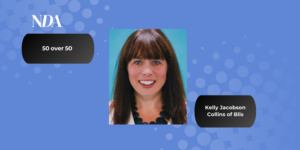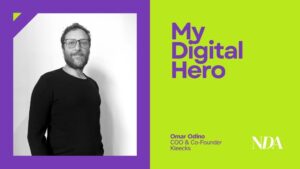Each week, NDA Editor Justin Pearse will be casting his eye over some of the week’s more important industry stories and highlights must-read articles you may have missed.
The digital media and marketing industry is driven by creativity, in all its forms, and the best creativity comes with the real life interaction that comes, mostly, from office life.
Just as it’s impossible to avoid the “so when are you going back?” question in any industry conversation today, it’s also impossible to avoid the subject in our industry’s media. Both Campaign and Digiday are doing a fantastic job in steering the debate and one unmissable article this week is Campaign’s Gideon Spanier’s column, Don’t write off the office reimagine it.
Gideon’s impassioned defence of the role of the office is well worth reading. As he says, “Advertising and media leaders would be rash to think their companies can function chiefly on Zoom in the future – with minimal or no interaction in real life. The creative industries thrive on the magic of ideas and serendipity and clusters of talent.”
Elsewhere in Campaign, essential for anyone mulling their next steps after new government advice on working from home, is a great roundup of exactly what other agency bosses are planning. Fascinating to hear the mix of views on how the new gudelines will be interpreted.
The week kicked off with the traditional dose of bad news for publishers from Apple. As Digiday highlighted, the company included two new anti-tracking features in its iOS 14 update that could have a big negative impact for publishers and advertisers.
It’s a story worth digging into to discover exactly how this could play out but as Lara sums up, “As with all of Apple’s recent privacy updates, the latest ITP tightening is likely to negatively affect publisher revenue as they will have less information about visitors to their websites who use Apple devices.”
Alongside consumer privacy, which all of Apple’s stringent new crackdowns are built around, brand safety continues to be a constant headache for advertisers online.
Brand safety online is an endemic issue. And the problem has only worsened over the years, as advertisers discover their well-meaning ad budgets are in fact unknowingy supporting hate speech, misinformation campaigns or even terrorism. Which makes the growth of ethical whitelisting especially welcome. As a great indepth article on The Drum explores, the practice sees advertisers proactively pick media partners to work with based on their ethical behaviour, from their employment practices to sustainability records.
At the other end of the spectrum, Reddit this week launched new brand safety controls and Allison Schiff’s story on it makes interesting reading. As she points out the brand safety problem is particularly acute on such platforms, where “UGC (user generated content) is fast-moving and difficult to moderate. Reddit, which has more than 130,000 active communities and sees more than 8,000 interactions on its platform every minute, is well aware of this.”
“












